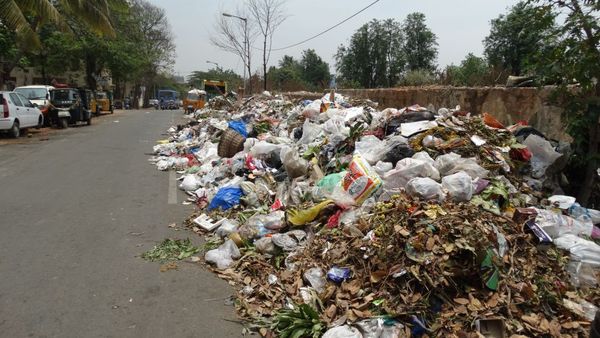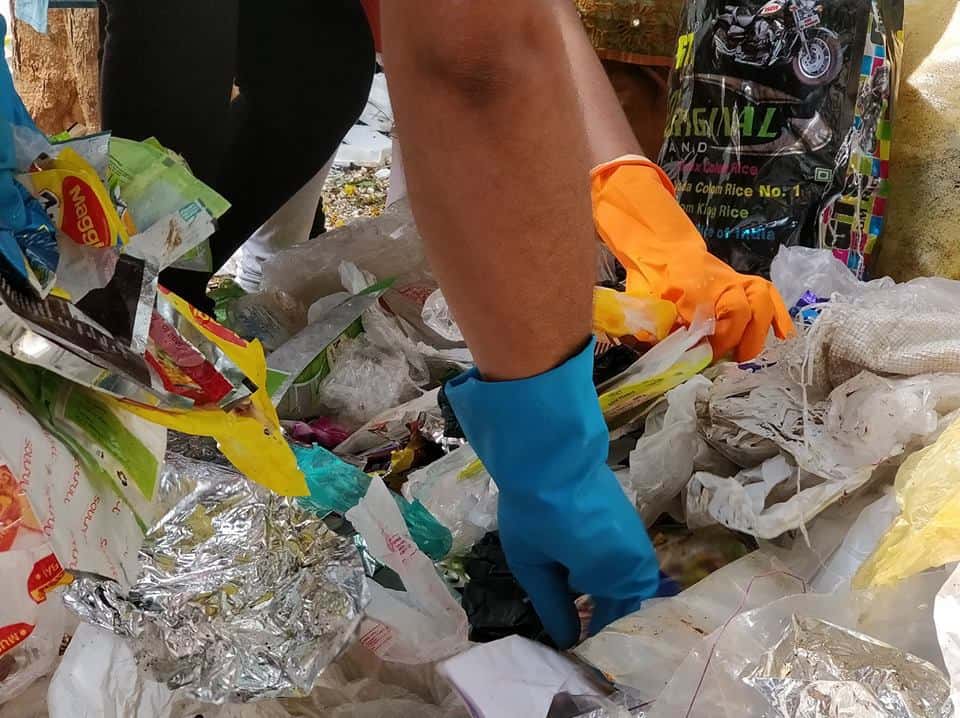International Forum for Environment, Sustainability and Technology (iFOREST), has released two reports on baseline studies of solid and plastic waste in Haridwar and Rishikesh. Both of these are Ganga cities, and understanding their waste generation and management practices are significant for Ganga rejuvenation. At the same time, the Delhi-based environmental organization, has come out with an India-specific methodology for developing solid and plastic waste inventory for Indian cities.
Presenting the city reports, Chandra Bhushan, CEO of iFOREST said “One of the major challenges we faced was absence of any specific methodology to develop an inventory. This study provided us an opportunity to develop a robust methodology for inventorizing waste. This methodology can also be used by other municipalities in the country.”
At a virtual event, the report was released by Dr Prashant Gargava, Member Secretary of Central Pollution Control Board (CPCB). In the inaugural session Dr Ashok Ghosh, Chairman, Bihar State Pollution Control Board; Ms Anja Meinecke, Head (Market and Client) GIZ; Mr. Nicholas Kolesch, Vice President (Projects), Alliance to End Plastic Waste; and Mr Chandra Bhushan, CEO, iFOREST were present. The report has been prepared in collaboration with Deutsche Gesellschaft für Internationale Zusammenarbeit (GIZ) and is part of the ongoing initiative of Project Aviral- reducing plastic waste in the Ganga funded by the Alliance to End Plastic Waste.
- First of its kind study to quantify the composition of solid and plastic waste in Indian cities and municipal areas.
- The study sampled 394 households and 89 commercial establishments in Rishikesh, and 383 households and 91 commercial establishments in Haridwar, to characterize solid and plastic waste. This included various socio-economic groups.
- The study also captures the practice, awareness and attitude of the households and commercial establishments on waste management. It shows that public participation will be critical for effective waste management.
- The study shows that a major challenge of waste management is segregation at source. Changing people’s attitude and redesigning the waste collection infrastructure will be important to ensure source segregation.
- The report highlights the importance of developing waste data inventory management systems and institutional strengthening for effective and sustainable waste management in the cities.
Read more: What Uttarkashi’s garbage problem tells us
Besides a method for developing a waste inventory, the study also involved three important components.
The first was to understand the current status of waste management in the cities, including evaluation of the past and current initiatives, population and source enumeration, waste management systems and infrastructure, and mapping the informal sector and plastic waste value chain.
The second was to quantify and characterize solid and plastic waste, including development of solid and plastic waste inventory and assessment of different types of plastic.
The third was to capture the perception, knowledge and attitude of various stakeholders on waste management. This included the households surveyed in Rishikesh (394) and Haridwar (383), and 180 commercial establishments in the two cities.
Speaking at the event, Prashant Gargava, emphasized on the need to bring in behavioural changes for solving the waste problem, among both businesses and people. “CPCB is putting a lot of emphasis on Extended Producer Responsibility (EPR) to tackle the issue of plastic waste, particularly Multi-Layer Packagings (MLPs). We are trying to tackle the problem throughout the value chain”, he said.
Prashant Gargava also emphasized on the need to harmonize the inventory methodology so that variation in data being received from different municipalities can be standardized.

Ashok Ghosh, who is currently in Patna, another city on the bank of river Ganga, emphasized on the need to integrate waste inventory into the planning process for developing effective waste management infrastructure. He also suggested that “for resolving the plastic waste problem better understanding of the types and composition of plastics in the waste stream will be required”.
Read more: Let’s not allow corona to defeat the fight to reduce plastic
Key findings of the study
The key findings which have emerged from the assessment studies of the two cities are as follows:
- Segregation at source is poor, around 70% of households in Haridwar and 90% households in Rishikesh use single bin for waste disposal.
- Data management system needs to be institutionalized for regular updating of waste inventory data.
- Decentralized waste processing systems is missing in both the cities.
- Plastic constitutes major portion of dry waste component; it is around 37% at Rishikesh and 31% at Haridwar.
- Role of informal waste collectors are significant in managing high value plastic, but the low value plastics such as LDPE and MLPs, which constitute approximately 70% of plastic waste, are of major concern.
- 9% of total plastic waste generated in Rishikesh is unmanaged and 10% percent of it is burnt, while 25-30 % leaks into water bodies.
- 19% of total plastic waste generated in Haridwar is unmanaged out of which 13% percent is burnt while 30-35 % leaks into the water bodies.
- Waste management programmes and campaigns should be focused on bringing behavioural changes to ensure success of waste management system.
Plastic waste generation and its mismanagement is one of India’s biggest environmental challenges currently. The changing lifestyle in both urban and rural areas is escalating the problem. However, there is lack of adequate data on solid and plastic waste generated from our cities. Moreover, it is inconsistent because of absence of a standard methodology to determine solid and plastic waste inventory.
“Both poor data and lack of a sound methodology to develop the waste inventory is the biggest challenge for waste management. Experience worldwide shows that developing a waste management system without an accurate inventory is like ‘shooting in the dark’. Therefore, it is high time that we develop such method, strengthen our institutions and implement the regulations of waste management effectively” said Chandra Bhushan.
[This information was shared through a Press Release from Delhi-based International Forum for Environment, Sustainability and Technology (iFOREST), and has been republished here with minimal edits.]
